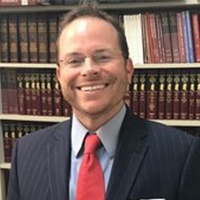Morgan City White Collar Crime Lawyer, Mississippi
Sponsored Law Firm
-
 x
x

Click For More Info:
-
The Law Offices of Richard L. Cooper, P.A.
848 Brickell Avenue Suite 800 Miami, FL 33131» view mapDWI/DUI, Drug Trafficking, Felony Nationally Ranked Top 40 Under 40
With Richard L. Cooper you can expect a trusted confidant who will work diligently to fully understand your case and determine a road map to help you regain control of your life.
800-756-2781
Not enough matches for Morgan City White Collar Crime lawyer.
Below are all Morgan City Criminal lawyers.
John C. Cox
✓ VERIFIEDAccident & Injury, Divorce & Family Law, Estate, Criminal, Real Estate
The Oldest Law Firm in Cleveland, Mississippi
A native of Cleveland , John C. Cox has been practicing law in his hometown since 1999. John began work as an associate for his late father and cous... (more)
Arthur Hugo Calderon
Litigation, Family Law, White Collar Crime
Status: In Good Standing Licensed: 13 Years
John H. Cox
Family Law, White Collar Crime, Civil Rights, Personal Injury
Status: In Good Standing Licensed: 51 Years
Clinton M Guenther
Military, Health Care Other, Divorce & Family Law, Criminal
Status: In Good Standing
Charles C Auerswald
Landlord-Tenant, Lawsuit & Dispute, Divorce & Family Law, Criminal
Status: In Good Standing
Waldo Sterling Stuckey
Commercial Real Estate, Guardianships & Conservatorships, Criminal, Bankruptcy, Estate
Status: In Good Standing Licensed: 53 Years
Luke James Schissel
Real Estate, Lawsuit & Dispute, Criminal, Bankruptcy
Status: In Good Standing Licensed: 55 Years
Katherine P Stuckey
Commercial Real Estate, Electronic Commerce, Criminal, Collection, Guardianships & Conservatorships
Status: In Good Standing Licensed: 35 Years

 Richard L. Cooper Miami, FL
Richard L. Cooper Miami, FL AboutMiami Attorney at Law
AboutMiami Attorney at Law ServicesCriminal Defense
ServicesCriminal Defense

